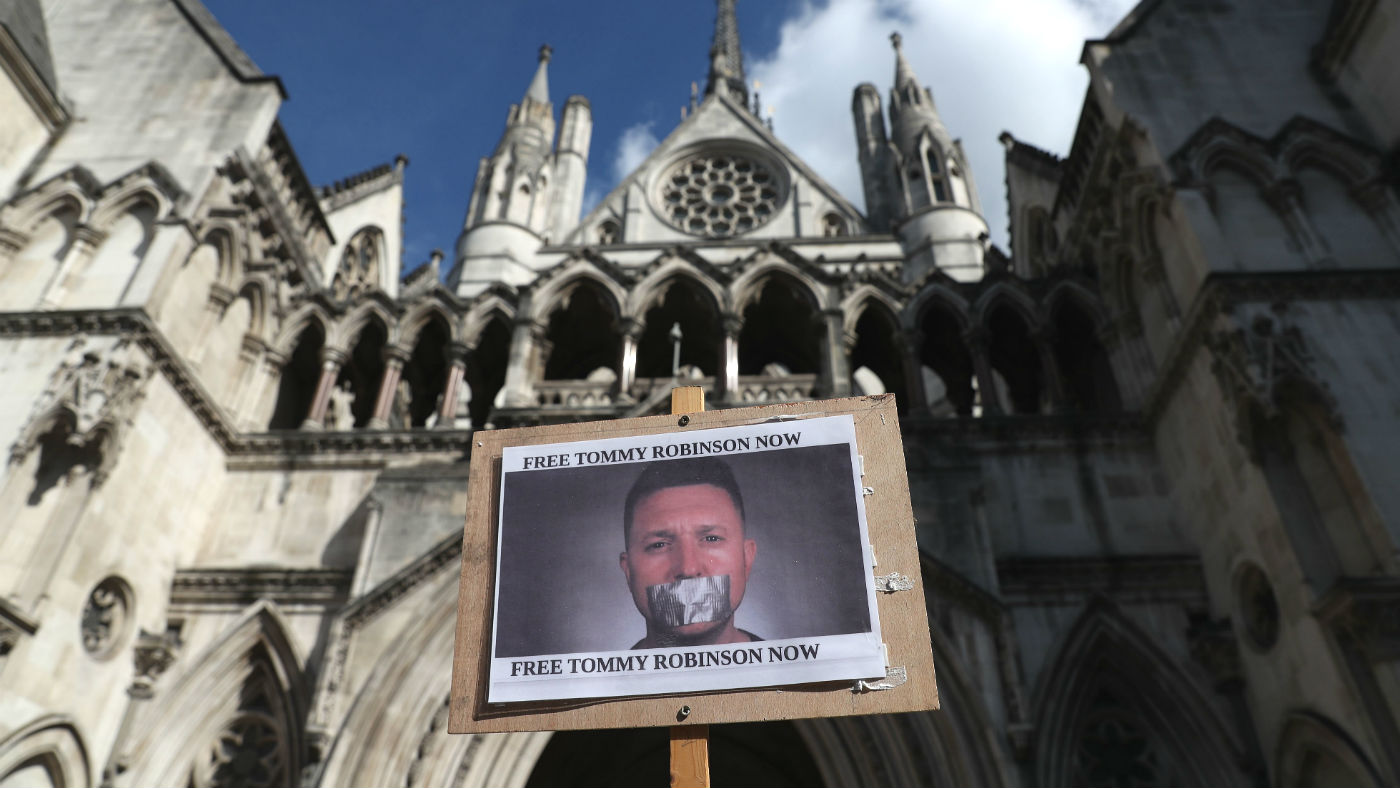Inside Britain’s nationalist dark web
Downing Street has set up special unit to monitor network of anonymous ‘news’ websites spreading populist messages

A free daily email with the biggest news stories of the day – and the best features from TheWeek.com
You are now subscribed
Your newsletter sign-up was successful
A burgeoning network of anonymous “news” websites that create viral content and spread populist messages about the UK across the internet has caught the attention of the government.
The first of a major three-part investigation by Politico has shown how “a new breed of hyper-partisan news sites” that promote pro-Brexit, anti-Islam, right-wing messages “has got the government worried”.
The threat these news sites pose is deemed to be so great that Downing Street has set up a special unit to monitor their activity.
The Week
Escape your echo chamber. Get the facts behind the news, plus analysis from multiple perspectives.

Sign up for The Week's Free Newsletters
From our morning news briefing to a weekly Good News Newsletter, get the best of The Week delivered directly to your inbox.
From our morning news briefing to a weekly Good News Newsletter, get the best of The Week delivered directly to your inbox.
“But it is struggling for an effective response” says Politico’s Tom McTague, who quotes one “exasperated Number 10 official” as saying: “Who do you ring? You don’t know who these people are”.
Many of these so-called news sites are registered outside the UK. One example is PoliticalUK.co.uk, which was only formally set-up in Arizona nine months ago. It has nevertheless produced some of the most viral news stories in the UK this year, despite having no named editor and only one reporter using a pen name.
Since it started publishing stories at the end of April, the site has amassed more than 3 million interactions on social media, with an average of 5,000 ‘engagements’ for every story it has published, far more than most national newspapers.
The latest was a story that claimed a Ukip-backed protest against Theresa May’s Brexit deal last Sunday had been wildly misreported by the rest of the British mainstream media.
A free daily email with the biggest news stories of the day – and the best features from TheWeek.com
Despite the fact that claims “tens of thousands” had marched against “Brexit betrayal” were immediately discredited, social media monitoring specialist NewsWhip calculated by Monday lunchtime the story had picked up over six times as many Facebook interactions as an equivalent article from the Daily Mail – the most read English-language news sites in the world.
It follows a pattern of insidious and far-ranging disinformation campaigns operating in the UK and US that have slowly come to light in recent years.
Much of this focuses on Russian “trolls” or fake news factories which aim to exploit political, racial and religious tensions in order to create disunity and drive a specific political agenda.
In Britain, openDemocracy has spent two years investigating the dark money and secretive interests behind the Brexit vote and rise of far-right populist politics.
The Guardian has also published an investigation detailing how the far-right activist Tommy Robinson is receiving “financial, political and moral support from a broad array of non-British groups and individuals, including US thinktanks, rightwing Australians and Russian trolls”.
Robinson, whose real name is Stephen Yaxley-Lennon, has become a cause celebre among far-right activists after he was imprisoned for contempt of court. His sentencing earlier this year prompted a vigorous international Twitter campaign, which saw 2.2 million tweets posted using the #freetommy hashtag.
Analysis conducted for the Guardian by the London-based Institute for Strategic Dialogue found that more than 40% of the tweets came from the US, 30% from the UK and other significant volumes from Canada, the Netherlands and nine other countries.
A separate study of about 600 Twitter accounts, believed to be directly tied to the Russian government or closely aligned with its propaganda, found significant numbers had tweeted prolifically in Robinson’s defence.
-
 Bonfire of the Murdochs: an ‘utterly gripping’ book
Bonfire of the Murdochs: an ‘utterly gripping’ bookThe Week Recommends Gabriel Sherman examines Rupert Murdoch’s ‘war of succession’ over his media empire
-
 Gwen John: Strange Beauties – a ‘superb’ retrospective
Gwen John: Strange Beauties – a ‘superb’ retrospectiveThe Week Recommends ‘Daunting’ show at the National Museum Cardiff plunges viewers into the Welsh artist’s ‘spiritual, austere existence’
-
 Should the EU and UK join Trump’s board of peace?
Should the EU and UK join Trump’s board of peace?Today's Big Question After rushing to praise the initiative European leaders are now alarmed
-
 Substack's moderation crisis: the revolt over 'Nazi newsletters'
Substack's moderation crisis: the revolt over 'Nazi newsletters'Talking Points Platform facing 'greatest crisis in its short history' amid writer exodus over hate speech vs. free speech debate
-
 Free app access for The Week’s subscribers during Royal Mail strikes
Free app access for The Week’s subscribers during Royal Mail strikesSpeed Read If you have a subscription to The Week magazine you can read the digital edition on your tablet or phone
-
 Comic Relief to end ‘white saviour’ celebrity trips to Africa
Comic Relief to end ‘white saviour’ celebrity trips to AfricaSpeed Read Charity’s appeal videos described by critics as ‘poverty porn’ and ‘devoid of dignity’
-
 Prince Harry and Meghan Markle to star in ‘fly-on-the-wall’ Netflix reality show
Prince Harry and Meghan Markle to star in ‘fly-on-the-wall’ Netflix reality showSpeed Read Former minister accuses couple of ‘exploiting’ royal links with big-bucks deal
-
 Royal officials to ‘scrutinise’ Prince Harry and Meghan Markle’s $150m Netflix deal
Royal officials to ‘scrutinise’ Prince Harry and Meghan Markle’s $150m Netflix dealSpeed Read Duke and Duchess of Sussex have inked agreement to produce documentaries and films for the streaming service
-
 Prince Harry and Meghan Markle pitch mystery project idea to Hollywood
Prince Harry and Meghan Markle pitch mystery project idea to HollywoodSpeed Read The Sussex royals have been shopping their concept around tinseltown since June
-
 Meghan Markle ‘furious’ over Palace’s failure to defend her ‘against true stories’
Meghan Markle ‘furious’ over Palace’s failure to defend her ‘against true stories’Speed Read Legal documents say she felt unprotected by the royal ‘institution’ - but insiders claim press team were powerless
-
 Ronan Farrow: is Harvey Weinstein’s arch-enemy ‘too good to be true’?
Ronan Farrow: is Harvey Weinstein’s arch-enemy ‘too good to be true’?Speed Read Pulitzer-winning #MeToo journalist rejects New York Times columnist’s allegations of ‘shakiness’ in his work